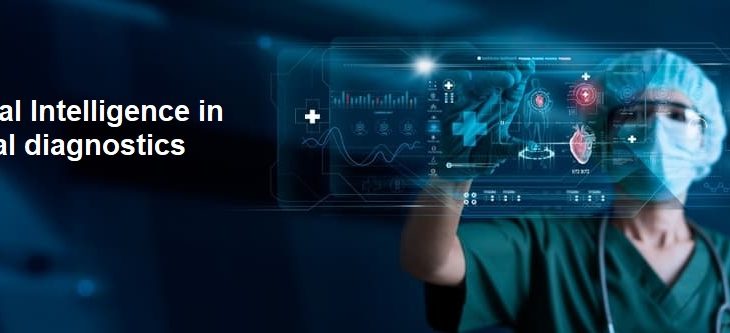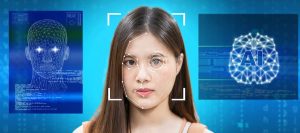Artificial Intelligence in Medical Diagnostics: Revolutionizing Healthcare

Artificial Intelligence (AI) has emerged as a powerful tool in the field of medical diagnostics, revolutionizing the way healthcare providers make diagnoses and manage treatment. With its ability to analyze vast amounts of data and identify patterns, AI has the potential to enhance clinical decision-making and improve patient outcomes. In this article, we will explore the various applications of AI in medical diagnostics and how it is transforming the healthcare industry.
Introduction: The Dawn of Artificial Intelligence in Medical Diagnostics
In the contemporary era of healthcare, a profound transformation is underway as Artificial Intelligence (AI) takes center stage in the realm of medical diagnostics. This paradigm shift heralds a new era where data-driven insights, technological prowess, and unprecedented analytical capabilities converge to reshape the very foundations of patient care.
This exploration embarks on a journey into the transformative landscapes where AI becomes the catalyst for revolutionizing healthcare diagnostics. From enhancing accuracy to unlocking personalized medicine, the integration of AI unveils possibilities that were once the realm of science fiction. As we navigate through this groundbreaking evolution, the intersection of advanced technology and medical expertise paints a vivid picture of a future where diagnoses are not only precise but also swift and tailored to individual patient needs.
Join us in unraveling the intricate tapestry of Artificial Intelligence in Medical Diagnostics, where innovation meets compassion, and where the amalgamation of cutting-edge technology and healthcare expertise promises a healthcare landscape that is not just transformed but truly revolutionized.
The Importance of Accurate Diagnosis in Healthcare
Accurate diagnosis stands as the cornerstone of effective healthcare, serving as the compass that guides clinicians toward precise and tailored treatment strategies. In the intricate web of medical decision-making, a reliable diagnosis is the linchpin, influencing therapeutic choices, prognostic outlooks, and ultimately, patient outcomes. It not only steers the course of immediate interventions but also plays a pivotal role in long-term care planning, fostering a foundation for patient well-being.
Beyond individual patient care, the importance of accurate diagnosis ripples through public health initiatives, shaping epidemiological understanding and enabling the timely implementation of targeted interventions. Accurate diagnostics empower healthcare systems to allocate resources efficiently, address emerging health threats, and track the efficacy of preventive measures.
In the contemporary landscape, the integration of advanced technologies, such as Artificial Intelligence and molecular diagnostics, further underscores the significance of precision in diagnosis. These innovations not only enhance the speed and accuracy of diagnoses but also open new frontiers in uncovering subtle biomarkers and predicting disease trajectories.
In essence, accurate diagnosis is not merely a clinical necessity; it is a linchpin that connects the realms of individual patient care, public health, and medical innovation. As healthcare journeys into an era of personalized and data-driven medicine, the imperative of precise diagnostics becomes increasingly pronounced, heralding a future where healthcare is not just about treating conditions but about tailoring interventions with unparalleled precision for the benefit of each patient.
The Rise of AI in Medical Diagnostics

In recent years, AI and machine learning have gained traction as powerful tools for assisting in the diagnostic process. These technologies have the potential to revolutionize healthcare by providing more precise and efficient diagnoses. Researchers and companies around the world are leveraging AI to develop innovative solutions that can augment physicians’ judgment and improve diagnostic accuracy.
One notable example is the work of scientists at Babylon, a global tech company focusing on digital health. They have developed new AI symptom checkers that utilize causal reasoning in their machine learning algorithms. Unlike previous versions that relied solely on correlations between symptoms and likely causes, these AI symptom checkers can “imagine” alternative realities and consider different diseases as potential causes of a patient’s symptoms. This approach has demonstrated promising results in test cases, outperforming over 70% of doctors in diagnosing illnesses.
Another breakthrough in AI-based diagnostics comes from the University of Bonn in Germany. Researchers there have developed a machine learning program that improves the diagnosis of leukemia from blood samples. By evaluating blood or bone marrow for the presence of cancer of the lymphatic system, their AI program enhances measurement values and increases the speed and objectivity of analyses. This method is particularly beneficial for small laboratories with limited resources, as it provides a cost-effective solution for accurate leukemia diagnosis.
AI for Personalized Treatment and Prognosis
In addition to assisting with diagnosis, AI is also being used to personalize treatment plans and predict patient outcomes. Researchers at Queen Mary University of London have employed AI to analyze blood samples from rheumatoid arthritis patients and predict their response to treatment. By identifying new biomarkers that indicate the effectiveness of disease-modifying anti-rheumatic drugs, AI analysis can determine which patients are likely to benefit from the treatment. This approach reduces the risk of exposing patients to drugs that may not be effective for them, saving time and improving overall patient care.
Similarly, a team of researchers at the University of Oxford has developed machine learning technology that identifies red flags for future heart attacks. By analyzing fat biopsies from cardiac surgery patients, the AI program detects inflammation, scarring, and changes in blood vessels, providing early indications of potential heart problems. This technology has the potential to significantly improve current diagnostic methods and allow for preventive measures to be taken before a heart attack occurs.
Challenges and Future Directions
While AI shows great promise in medical diagnostics, there are several challenges that need to be addressed for its widespread adoption. One major challenge is the quality and availability of medical data. AI algorithms require large amounts of high-quality labeled data to be effective, and in the medical field, data can often be fragmented, incomplete, unlabeled, or unavailable. Efforts are underway to address this issue, such as the development of federated learning techniques that allow data to be shared and analyzed without compromising patient privacy.
Another challenge is the potential bias in AI algorithms. If trained on data that is not representative of the population it serves, AI algorithms may produce incorrect or unfair diagnoses. Addressing bias in AI algorithms is crucial to ensure equitable healthcare outcomes for all patients.
Interoperability standards and protocols are also necessary to ensure that AI-based diagnostic tools developed by different companies and organizations can work together effectively. This will enable seamless integration of AI technologies into existing healthcare systems and facilitate collaboration among healthcare providers.
Looking ahead, future research should focus on improving the accuracy and efficiency of AI algorithms in medical diagnostics. Combining whole-genome and other patient data for use in machine learning algorithms holds great potential for early detection, diagnosis, sub classification, and outcome prediction. By harnessing the power of AI, we can enhance the diagnostic process, guide physicians with second opinions, and ultimately improve patient care.
Frequently Asked Questions on Artificial Intelligence in Medical Diagnostics
-
How does Artificial Intelligence revolutionize healthcare through medical diagnostics?
Artificial Intelligence revolutionizes healthcare by employing advanced algorithms to analyze medical data, interpret imaging results, and assist in the detection of diseases, ushering in a new era of precision diagnostics.
-
What is the role of Artificial Intelligence in Medical Diagnostics?
Artificial Intelligence plays a crucial role in medical diagnostics by leveraging advanced algorithms and machine learning to analyze medical data, interpret imaging results, and aid in disease detection.
-
What types of medical imaging benefit from AI applications?
AI applications benefit various medical imaging modalities, including X-rays, MRIs, CT scans, and ultrasound, aiding in the diagnosis of conditions such as tumors, fractures, and neurological disorders.
-
Can AI enhance the accuracy of medical diagnoses?
Absolutely. AI enhances accuracy by learning intricate patterns and features from extensive datasets, aiding healthcare professionals in interpreting complex medical images and improving diagnostic precision.
-
In what ways does AI impact different medical imaging modalities?
AI applications benefit various imaging modalities, including X-rays, MRIs, CT scans, and ultrasound. It transforms the diagnosis of conditions such as tumors, fractures, and neurological disorders, offering unparalleled insights.
-
How does AI contribute to early disease detection?
AI facilitates early disease detection by analyzing subtle patterns and anomalies in medical data. This proactive approach allows for timely interventions, ultimately improving patient outcomes.
-
In what manner does AI contribute to personalized medicine?
In the realm of healthcare virtuosity, AI assumes the role of a meticulous conductor, shaping the landscape of personalized medicine through its adept analysis of individual patient data. This allows for tailored treatment plans, predictions of disease risks, and optimization of therapeutic outcomes based on genetic, clinical, and imaging information.
-
What ethical considerations are associated with deploying AI in medical diagnostics?
Deploying AI in medical diagnostics raises ethical considerations, including safeguarding patient privacy, ensuring data security, maintaining transparency in algorithmic decision-making, and addressing biases in training data.
-
How can healthcare professionals adapt to the integration of AI in diagnostics?
Healthcare professionals can adapt by staying informed about AI advancements, collaborating with AI developers, undergoing relevant training, and utilizing AI as a supportive tool to enhance diagnostic accuracy.
-
What regulatory frameworks govern the use of AI in medical diagnostics?
Robust regulatory frameworks, exemplified by the FDA in the United States and the European Medicines Agency (EMA) in Europe, govern the approval and deployment of AI-based medical diagnostic tools, ensuring safety and efficacy.
As the landscape of healthcare undergoes a profound transformation with the integration of Artificial Intelligence, these FAQs provide insights into the pivotal role AI plays in shaping the future of medical diagnostics. Embracing this technological evolution promises a healthcare landscape characterized by precision, efficiency, and improved patient outcomes.
Artificial Intelligence is transforming the field of medical diagnostics, providing healthcare providers with powerful tools to improve accuracy and efficiency in diagnosing diseases. From AI symptom checkers that utilize causal reasoning to machine learning programs that enhance leukemia diagnosis, AI is revolutionizing healthcare by augmenting physicians’ judgment and providing valuable insights. As challenges are addressed and research progresses, AI will continue to play a crucial role in personalized treatment plans, prognosis, and overall healthcare delivery. With AI-powered diagnostics, we can pave the way for a future where accurate diagnoses are accessible to all, leading to improved patient outcomes and a more efficient and effective healthcare system.
References
- “New AI Symptom Checkers Could Help Reduce Diagnostic Mistakes in Primary Care.” Nature Communications, vol. 13, no. 1, 2022, doi:10.1038/s41467-022-27758-2.
- University of Bonn. “Artificial Intelligence Improves Diagnosis of Blood Cancer.” Patterns, vol. 3, no. 3, 2022, doi:10.1016/j.patter.2022.100319.
- Queen Mary University of London. “AI Analysis of Blood Samples Predicts Rheumatoid Arthritis Treatment Response.” Nature Communications, vol. 12, no. 1, 2021, doi:10.1038/s41467-021-21614-9.
- University of Oxford. “Machine Learning Technology Could Help Predict Heart Attacks.” European Heart Journal, vol. 43, no. 3, 2022, doi:10.1093/eurheartj/ehab619.
- Vathsala Patil et al. “Potential of Artificial Intelligence in Radiology.” Journal of Clinical Imaging Science, vol. 11, 2021, p. 45, doi:10.25259/JCIS210




puravive reviews
This asset is incredible. The radiant material shows the maker’s earnestness. I’m dumbfounded and envision more such astonishing presents.